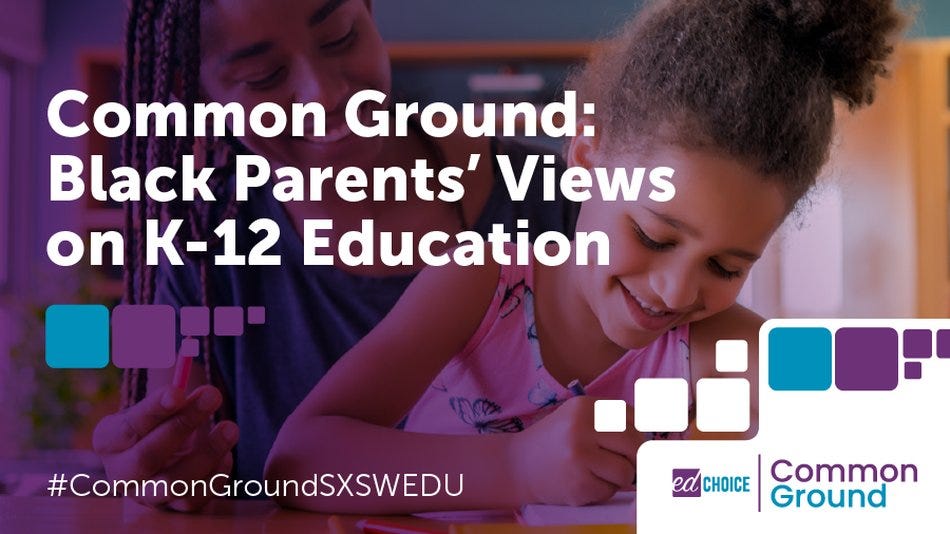Welcome back to the Education Policy Hotlist, where we curate stories beyond divisive headlines and clickbait, reviewing the latest developments in education policy.
It was great to connect with many of you at CCSSO's Legislative Conference this week. The highlight for me was listening to Charlene Russell-Tucker, the Connecticut State Chief, and the students from Danbury High School explain how their student-proposed funding ideas led them into advocacy.
Many of us can probably recall when we first realized the potential of civic engagement. It's encouraging to see how federal relief funds were utilized to promote service and partnerships in innovative ways.
SUMMER LEARNING PLANS
Creating effective summer programs for school districts is a continuous process that starts with analyzing fall data and holding parent-teacher conferences and culminates with planning, implementing, and evaluating programs at the start of the new year. Results for America has released a new toolkit to assist in this process, offering case studies, in-depth analysis, and best practices.
THE WEEKS AHEAD
On April 4, 2023, at 12:00 p.m. (EST) FuturedEd is hosting a webinar titled Teachers Like Us: Strategies for Increasing Educator Diversity [Register here].
TEACHER WORKFORCE
HBCUs prepare nearly half of our country’s Black educators [AP].
In his article, Michael Hansen explores the potential effectiveness of a national minimum salary in improving the teacher workforce across the country. However, he argues that addressing the issue of the teacher workforce goes beyond just increasing pay and that it is a local problem rather than a global one. Hansen also notes that there is no historical precedent or appropriate role for the federal government to intervene in determining teacher salaries [Brookings].
Maryland and Houston provide good examples of how the proposed national minimum teacher salary of $60,000 could be implemented [EdSurge].
Some states have similar teacher turnover trends [Chalkbeat].
FEDERAL EDUCATION POLICY
Biden's proposed fiscal year 2024 budget features a nearly 14% increase in education spending, as reported by Politico. The proposed increase encompasses several areas, including $3 billion for educator preparation, development, and leadership; a $2.2 billion increase in Title I grants for school districts to aid academic recovery; and a $305 million increase in research-based bilingual instruction through Title III [Politico].
The full House will review and vote on the proposed conservative Parent Bill of Rights next week. In response, Congresswoman Bonamicci collaborated with a national parent advocacy coalition to develop a counter-bill to address any discriminatory undertones in the original bill [The74].
SOCIAL AND EMOTIONAL LEARNING AND WELL BEING
Discover how the BARR approach can revolutionize student support in Minnesota [MN].
The number of students participating in school meals is rising [FRAC].
Montana announces $83 million in state and federal funding to provide over 22 million school meals statewide [MT].
READING INSTRUCTION
A new brief from Pivot Learning outlines the core elements of a comprehensive literacy program, including multilingual support, early screening and assessment, and foundational reading skills. [Pivot Learning].
Today's power struggles over book choices and literacy instruction resembles Jim Crow-era policies that barred students from high-quality learning in the early 20th century. [The74].
Dr. Kymyona Burk tells Jocelyn Pickford at CurriculumHQ that when asked what single policy states should enact, they must ban three cueing systems. [CurriculumHQ].
POSTSECONDARY SUCCESS
Bellwether has released a series of case studies from Texas, Ohio, and Colorado, along with pragmatic recommendations on how policymakers can expand postsecondary pathways [Bellwether].
ExcelinEd has released a model policy for state-funded programs that enable students to gain college and career opportunities through approved learning experiences [ExcelinEd].
ASSESSMENT AND ACCOUNTABILITY
The Center for Assessment has released a report about how more than a dozen states are developing, testing, or executing through-year assessment models. The report highlights essential considerations for policymakers and leaders involved in this process [NCIEA].
The controversy over eliminating the LSAT for law school admission persists. While some claim that eliminating the LSAT would eradicate systemic obstacles for students of color, others are looking into alternative measures of readiness [NYT].
HIGH DOSAGE TUTORING
Barriers, such as communication with families and improving student motivation and engagement, prevent most students from benefiting from high-dosage tutoring, according to a report from USC [USC].
Matt Kraft emphasizes the critical components of tutoring infrastructure that can empower a broader tutoring workforce [The74]
“The stronger the tutoring infrastructure,” said Kraft, “the less the program will rely on the individual skills that a tutor brings with them. And so it really opens up the potential labor supply pool to a much greater degree.”
SCHOOL CHOICE
A new analysis provides a landscape overview, interactive map, legislative scan, and analysis of private school choice options in every state [FutureEd].
A new analysis by FutureEd offers an interactive map, legislative scan, and analysis of private school choice options available in each state, providing a landscape overview of private school choice in the US [FutureEd].
Governor Kathy Hochul and the state legislature are grappling with her decision to abolish the charter school cap, which has prompted discussions about the future of charter schools in the state [Chalkbeat].
GOVERNANCE
ECS has analyzed 45 governors' state-of-the-state addresses, identifying common themes such as education funding, teacher workforce improvement, early childhood education, academic outcomes, physical and mental health, and postsecondary access [ECS].
EDUCATION FINANCE
In its third year of implementation, the Maryland Blueprint is receiving $600 million to fund local changes [The74].
ICYMI
Listen to the SXSW panel discussion recording, 'Common Ground: Black Parents' Views on K-12 Education,' featuring Jay Artis-Wright, Dr. Charles Cole III, Constance Lindsay, and Janell Wood.
Dr. Christine M. T. Pitts serves as Senior Policy Fellow at the Center on Reinventing Public Education, where she oversees policy leadership and external affairs. With a background as a teacher and researcher, Christine previously led research and evaluation for Portland Public Schools and served as Policy Advisor at NWEA, where she oversaw state and federal policy to advance equity and innovation in educational assessment. Follow her on LinkedIn, Instagram, and Twitter for updates.








